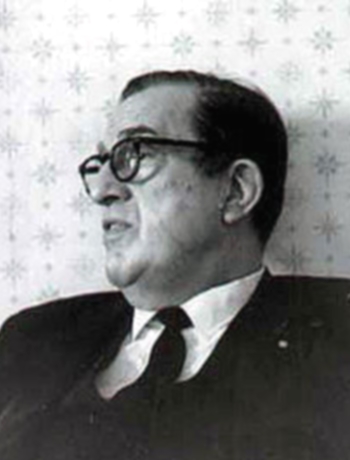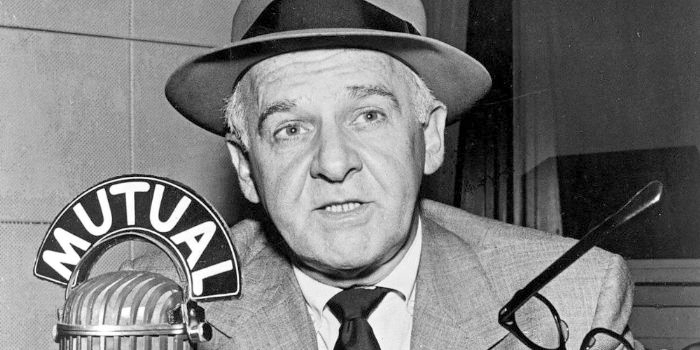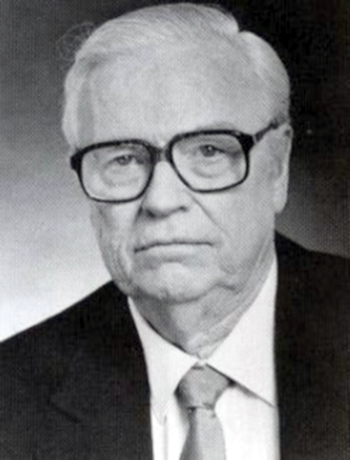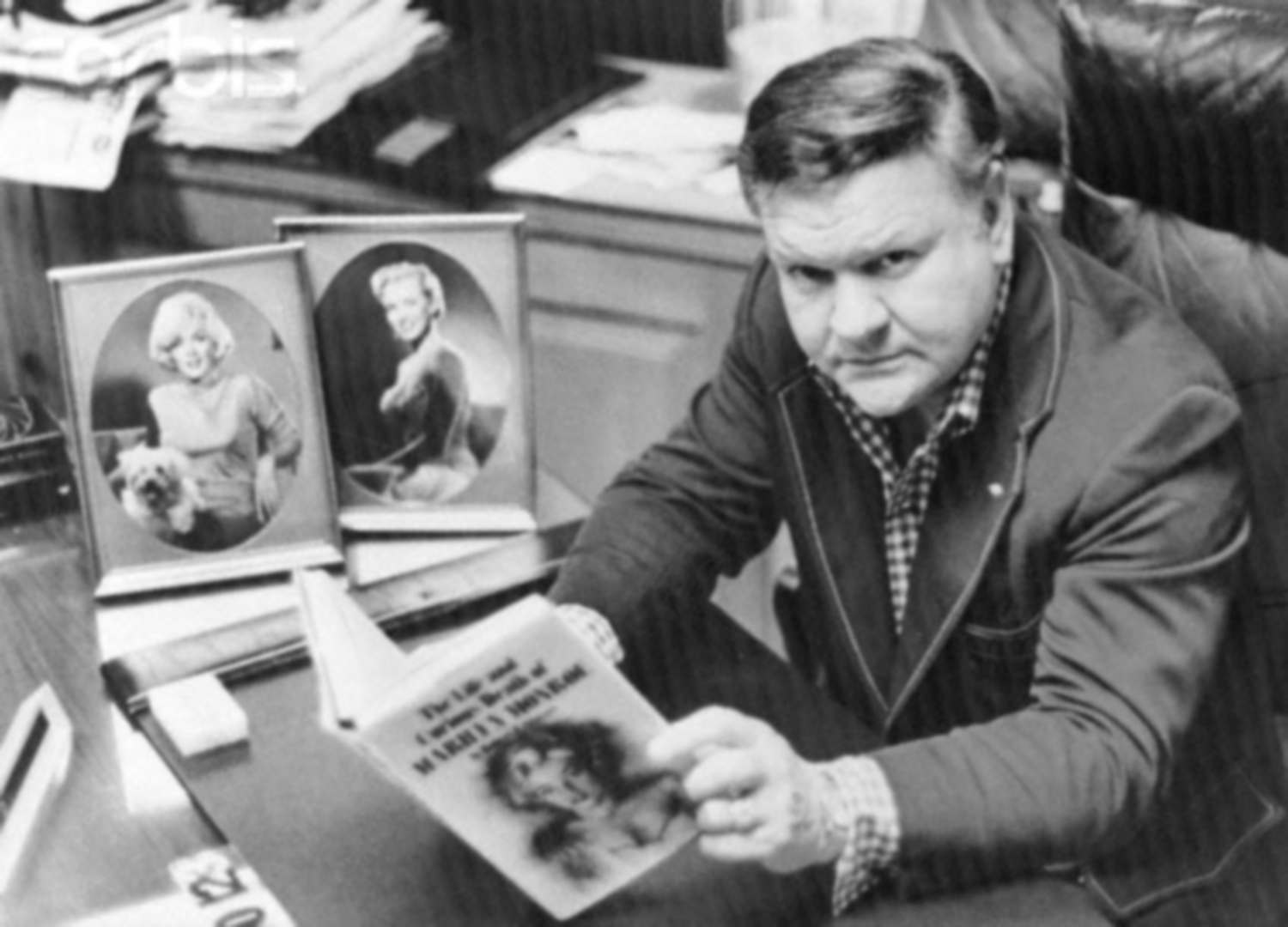Some Anti-Kennedy, Anti-Communists
Maurice Ries, Frank Capell and Sgt Jack Clemmons hated Communists; and by all accounts, they also hated the Kennedys. Into that hate-filled triumvirate, a threesome brewing a nasty stew, the stock for which was a rabid paranoia, toss a well-known rogue and agitator, Walter Winchell. He shared the triumvirate’s hatred of Communism, Communists and the Kennedys, a hatred also shared by a powerful fifth man, the Director of the FBI, J. Edgar Hoover, Walter Winchell’s pal.
Maurice Ries was the president of the Motion Picture Alliance for the Preservation of American Ideals, an anti-Communist group that accused the Screen Writers Guild of fostering a Communist invasion of Hollywood in 1950. Ries accumulated information and kept dossiers on movie stars and other Hollywood celebrities, including Marilyn Monroe, stars that he considered to be pro-Communist, therefore anti-American, and therefore definitely dangerous to America and the American way of life.
Francis “Frank” Alphonse Capell worked as a confidential investigator in New York State for the Sheriff of Westchester County. He was an operative in that law enforcement agency’s Subversive Activities Department. Apparently Capell saw Communists everywhere in America, lurking behind every tree and every shrub; and he also enjoyed a friendship and political alliance with Los Angeles policeman, Sgt Jack Clemmons. Clemmons was a friend of Marilyn’s first husband, Jimmie Dougherty, and the first officer from the Los Angele Police Department to arrive at Marilyn’s hacienda on the morning of August the 5th. Clemmons telephoned Dougherty that morning and reported Marilyn’s death, which he apparently called, at that time, a suicide. Clemmons was connected to The Fire and Police Research Organization, an anti-Communist aggregation dedicated to exposing subversives and activities that threatened America. Clemmons and Capell were allies in their own personal war against Communists and Communism. In addition, Capell was also Walter Winchell’s pal.
Winchell was a popular and powerful New York radio personality who also wrote a gossip column for the New York Daily Mirror. He enjoyed an enormous readership and a large listening audience which began in the era of prohibition and lasted until the early sixties when his popularity and his power began its decline. Winchell was a ruthless supporter of Franklin Delano Roosevelt and his New Deal, J. Edgar Hoover and Senator Joseph McCarthy; and the writer frequently used his newspaper column, along with his popular radio program, and attempted to destroy anyone who opposed him or his friends. Winchell referred to himself as just a son-of-a-bitch who often obtained his stories by lying to his sources or by promising to keep secret what he was told in confidence, a promise he never intended to honor. Also a close friend of Joe DiMaggio’s, Winchell was undoubtedly Marilyn’s friend and a media ally prior to her divorce action against the baseball legend.
Along with Betty Grable and various Hollywood elites, Marilyn attended Winchell’s fifty-sixth birthday party in 1953; but after Marilyn began dating Arthur Miller, Winchell assumed a different point of view and announced, during one of his radio broadcasts, that America’s Sweetheart, America’s most famous and favorite blonde actress was being courted by the literati of the left wing and implied that she was involved with Reds. Then, after America’s most famous blonde actress married Arthur Miller, the microphonist announced that most, if not all of the Miller’s friends and associates, both current and former, were Communist sympathizers. In 1962, Winchell asserted in one of his columns that Marilyn’s romantic interest was a presidential appointee who, like the frightened husband that he was, ran home to his wife, a veiled reference to Robert Kennedy. It is apparent that Walter no longer considered Marilyn to be America’s Sweetheart or most favorite blonde actress; but then, launching rumors about Marilyn and her romantic life was a commonplace stratagem.
Due to Arthur Miller’s leftward political leanings and writings, he came under the scrutiny of the Federal Bureau and J. Edgar Hoover. Marilyn became an object of the prevailing anti-Communist sentiments, suspicions and surveillance by the FBI after she began her romantic affair with Miller. Subpoenaed to testify before the House Un-American Activities Committee (HUAC) in mid-June of 1956, Miller was not a cooperative witness: he refused to reveal the names of friends or associates with alleged Communist affiliations. Miller also refused to identify friends or associates who had attended Communist gatherings. According to Donald Spoto, the HUAC chairman, Francis Walter, a Democrat Representative from Pennsylvania, offered to terminate the 1956 proceedings if Marilyn agreed to be photographed with members of the committee. She declined.
The State Department denied Arthur Miller’s application for an updated passport until he announced that he was going to marry Marilyn Monroe and travel to England with her where Sir Laurence Olivier waited to direct and costar in her next movie, The Sleeping Prince, later renamed The Prince and the Showgirl. As a result of her involvement with Miller, 20th Century-Fox and many persons in Hollywood pressured Marilyn to forsake the playwright out of fear that she would be blacklisted, which would have virtually ended her career. Despite that tremendous pressure, she fearlessly married Miller in a civil ceremony on June the 29th in 1956. He eventually received an updated passport; but he was cited for Contempt of Congress and found guilty on the 31st of May in 1957. At the time, the maximum punishment for Contempt of Congress was paying either a $500 fine or spending thirty days in jail; but partially due to Marilyn’s presence, Miller never served any prison time or paid a fine. On August the 7th in 1958, a Federal Court of Appeals overturned Miller’s conviction and ruled that he had been misled by the HUAC chairman, who assured the playwright that he would not be asked any questions about the Communist affiliations of friends, acquaintances or other associates.
In September of 1962 following Marilyn’s death, according to Donald Spoto, Frank Capell and Jack Clemmons met to discuss their investigation into Hollywood’s Communism problem. Maurice Ries also attended. That meeting was Ries’ initial encounter with Capell. At a subsequent meeting, Ries mentioned that he had compiled hundreds of files on celebrities and eventually directed his attention on the interesting and curious case of Marilyn Monroe. I’ll tell you a story (Spoto 600), Ries announced to Capell and Clemmons. Marilyn and Robert Kennedy had been romantically involved, according to Ries, prompting the attorney general to make a promise involving the famous movie star and matrimony; but the promisor later decided against wedding the promisee. In fact, the attorney general wanted to get rid of her (Spoto 601). After Robert Kennedy informed Marilyn of his decision to renege on his promise, she angrily threatened to publicly reveal their affair, which prompted the Kennedys to murder her and eliminate the threat she posed. Even though Ries did not have any tangible evidence to prove his The-Kennedys-Murdered-Marilyn theory, not long thereafter, Jack Clemmons and Frank Capell started feeding information to Walter Winchell, including supplemental details and accusations provided by Capell. Winchell partially serialized Ries’ theory and Capell’s version thereof in the New York Daily Mirror (Spoto 600-601).
Under his personal imprint, Herald of Freedom, in either late July or Early August of 1964, Capell published a thin pamphlet entitled, The Strange Death of Marilyn Monroe. In this pamphlet, referencing Winchell’s gossip column as a source and thereby referencing himself, Capell presented his expanded version of Ries’ Marilyn Monroe and Robert Kennedy affair theory and Ries’ imputation that the Kennedys murdered the dangerous blonde movie star.
Along with being a writer, Capell declared himself to be an instructor and an investigator, a researcher and a lecturer. He was also, in his opinion, a patriot who fought the enemies of his country. He proudly boasted that he maintained dossiers on two-million persons engaged and involved with the International Communist Conspiracy. He also boasted that he personally supervised the investigation of over five thousand individuals and organizations including Nazis, Fascists and Communists, usually on behalf of the FBI (Capell 3). As an FBI operative and asset, Frank Capell was a crusader against Communism. Capell was determined to save America from the Communist cabal and the one member of that cabal who he most feared was Bobby Kennedy.
In the introduction to his anti-Communist philippic, Frank Capell proclaimed that the story to follow featured an American girl, the famous movie star, Marilyn Monroe, who was deceived and used by materialistic avaricious people, by false friends with bad advice, by sex-depraved V.I.P.’s (Capell 5). Due to Marilyn’s association with these sexually depraved persons, Capell asserted, she had grown into an immoral woman; but she was also charitable and compassionate, a good-hearted trollop, really, with a child-like trust that she unfortunately misplaced in certain members of a pro-Communist faction. Marilyn’s misplaced trust led to her early death and her early grave; but she had been deceived by one depraved VIP particularly, the former attorney general, Bobby Kennedy, whose venerable public image was just the opposite of who and what he actually was, a Communist scoundrel out to destroy the American way of life. That was obvious to Capell since Kennedy would not deal decisively with Communism or Communists and the threat each posed: while Kennedy was attorney general he did not instigate an adequate number of investigations or arrests or prosecutions of Communist subversives; but the attorney general was not the only Communist with whom Marilyn Monroe was affiliated and by whom she was deceived, according to Capell.
In fact, the anti-Communist crusader asserted that every person in Marilyn’s coterie of friends was a Communist, her advisers and even her doctors. The only exception was Joe DiMaggio. These Communists used her to advance their subversive agenda; but from Capell’s perspective, Marilyn received exactly what she deserved: punishment for cavorting with Bobby Kennedy, a known Communist with no aversion to murder. Ultimately, Marilyn became an imperilment to her leftist friends and a threat to expose Kennedy; and, according to Capell: […] Communists are trained to obey orders, even orders to kill. Communists eliminate their enemies and the enemies of friends in high places (Capell 69). The Communist cabal simply eliminated their liabilities or persons who had become threats, using murders disguised as suicides, heart attacks and accidental deaths. Is that what happened to Marilyn Monroe? he wondered rhetorically, noting that Marilyn’s death was not only curious but also contained many suspicious aspects, which he would clarify and expose by presenting documented and undeniable evidence.
Capell’s pamphlet also denounced the investigation of Marilyn’s death and her autopsy, which he considered to be hopelessly flawed, incompetent and incomplete; and he also contradicted the assertions that Marilyn was seriously depressed and possibly suicidal. Even though he admitted that she had attempted suicide four times before, he declared those attempts unserious, just attempts to garner sympathy and attention in her moments of loneliness. Capell did not indicate how he knew Marilyn’s previous attempts to end her life were sympathy stunts or how he knew she was lonely and in need of attention; he just declared his clairvoyant assertion one of fact without presenting any evidence.
What actually motivated Alphonse to compose and publish his pamphlet in 1964? Was he actually concerned about the death of an alleged immoral Hollywood actress, one setting a poor example for America’s youth? Was he actually concerned that her death had not received a proper investigation? Did he actually care if Marilyn was murdered? Did he actually want justice for her? Pardon me if I express incredulity; and I ask that you consider the following.
The second Red Scare of the twentieth century, which focused itself primarily on Hollywood and a Communist infiltration into American cinema, began following World War II and had evolved from the Red Scare of 1917, prompted by the Russian Revolution. A Republican senator from Wisconsin, Joseph P. McCarthy, was the most prominent and the most vocal critic of Communism beginning in the forties; and he became the totem of anti-Communist sentiment. McCarthy and his name became forever associated with that sentiment in 1950 when an alert political cartoonist coined the term McCarthyism, a term which became a synonym for demagoguery, questionable investigative tactics and a paranoid fear of Communism, despite McCarthy’s sincere and not unfounded concern that the American way of life would be jeopardized by the American Communist Party.
Formed in 1938 under the administration of FDR and chaired by a Democrat Representative, Martin Dies, Jr., most Americans associate the Wisconsin Senator with the HUAC; however, McCarthy never served in the House of Representatives and he was never involved with that investigative body. The committee’s original purpose was to investigate alleged disloyalty and subversive activities by private citizens, public employees and organizations believed to have Nazi, Fascist or Communist associations, primarily in response to propaganda entering the United States during WWII. After the war ended, Communism and Communists became the main focus of the committee; and its efforts to locate and expose subversives continued during the Cold War. By 1953, however, McCarthy had lost most of his influence; and in 1954, he was censured by the Senate for his investigative tactics and inflammatory language. It is generally recognized that McCarthyism ended with the senator’s death in 1957; however, such was not, and is not, the case. A diminished HUAC operated as an investigative committee, chaired by various Democrat representatives, until the mid-nineteen-seventies when it was then finally disbanded; but disbanding the HUAC did not end McCarthyism.
Joseph McCarthy was a close friend of the Kennedy family, particularly Joe, Sr. and his son, then Senator John Kennedy. On more than one occasion, the senator defended McCarthy; and despite the well-known fact that both John and Robert Kennedy were avowed and acute anti-Communists, after John Kennedy’s election to the presidency in 1960, after the botched Bay of Pigs invasion, for which he was blamed, and the harrowing Cuban Missile Crisis, during which he refused to invade Cuba, many anti-Communist radicals believed the president was soft on Communism at best, and at worst, a Communist sympathizer, perhaps even a Communist himself merely disguised as a Democrat. Those sentiments also applied to his brother, the attorney general. Both John and Robert quickly made enemies of radical fringe groups, both to the left and right of the political center, and the paranoid, suspicious men who orchestrated those groups. Maurice Ries, Frank Capell and Jack Clemmons were three of those men, but particularly, Frank Capell.
Not long after John Kennedy’s assassination in November of 1963, expectations began that Robert Kennedy would be the vice-presidential nominee on President Lyndon Johnson’s ticket in the election year following. Robert Kennedy began to receive Democrat endorsements for a vice-presidential candidacy in January of 1964; but according to Arthur Schlesinger, the Democrat endorsements, and even a grass roots national letter writing campaign advocating for a Vice-President Robert Kennedy, were destined to fail: Lyndon Johnson did not want history to indicate that he won his four year presidential term merely because Bobby Kennedy was on his ticket. Perhaps the more truthful and acrid reasons were these: Lyndon despised Bobby who despised Lyndon. Their acrimony began during the presidential campaign of 1960. Also, Bobby Kennedy actually held a dim view of the vice-presidency, considered it to be a pointless job without political influence, a job that essentially involved waiting around for someone to die. According to Schlesinger, in Kennedy’s opinion, holding a seat in the US senate would provide control of the Kennedy wing of the Democratic party (Schlesinger 653) and allow criticism of Lyndon Johnson without the corresponding accusation of disloyalty. Although Robert Kennedy would not decide to run immediately, he recognized, asserted Larry Tye, that a position in the US Senate was the only position as a public servant available to him that made any sense, at least at that time. By early spring of 1964, newspapers whose names included the words Times and Post began to publish editorials predicting Robert Kennedy’s senatorial campaign. Frank Capell most certainly read many of those editorials.
On the 25th of August in 1964, while standing at a microphone festooned podium at Manhattan’s Gracie Mansion, Robert Kennedy announced that he intended to run for the senate as a New Yorker. In early September, he left the Johnson administration. The only conclusion possible became foregone: Bobby Kennedy would certainly run for president in 1968. But, the anti-Communist and anti-Kennedy factions planned to sabotage his candidacy by laying the groundwork for his political defamation. Obviously, Kennedy’s anticipated campaign for the senate, which would be followed by a campaign for the presidency, prompted Capell, out of hate, perhaps, but most certainly out of fear, to write and publish his thin pamphlet connecting Robert to Marilyn’s death and insinuating murder. It is entirely possible that Capell wrote another document which appeared in Marilyn’s mysterious FBI files; but he most certainly participated in composing a book allegedly about Marilyn’s life and death, one that accused the attorney general of actively participating in her tragic murder.
Capell’s political diatribe did not present any tangible or verifiable evidence to support that Bobby Kennedy was even romantically involved with Marilyn, much less enmeshed in her death. He offered only opinion, conjecture, innuendo and cleverly worded insinuations. Capell wrote: If Marilyn’s death were really murder dressed up to look like an accident or suicide who would have wanted her out of the way? (Capell 68). Capell never directly accused Bobby Kennedy of murdering Marilyn, a prudent choice and omission; but the anti-Kennedy crusader clearly and certainly wanted to implant that impression in the minds of his readers. He proclaimed that Bobby was an aggressive, ambitious and already important man with designs on the biggest job of all, the US presidency; and Kennedy knew, of course, that a sexual and a marital scandal would damage his designs. Capell’s anti-Kennedy pamphlet did not receive a wide distribution; and by early 1965, the careers of both Capell and Winchell were virtually over. Then, in June of 1965, Capell’s career came to a sudden and dishonorable end. The events leading to Capell’s ignominious but well deserved end will be presented in a later section. Still, from time to time, articles questioning the official edict that Marilyn’s death was a probable suicide appeared in various newspapers and magazines. Even so, Ries’ murder theory and Capell’s version thereof never gained any real momentum due to lack of traction. However, in one decade minus one year, Capell’s innuendo would receive an artistic impetus, an artistic jump-start.



